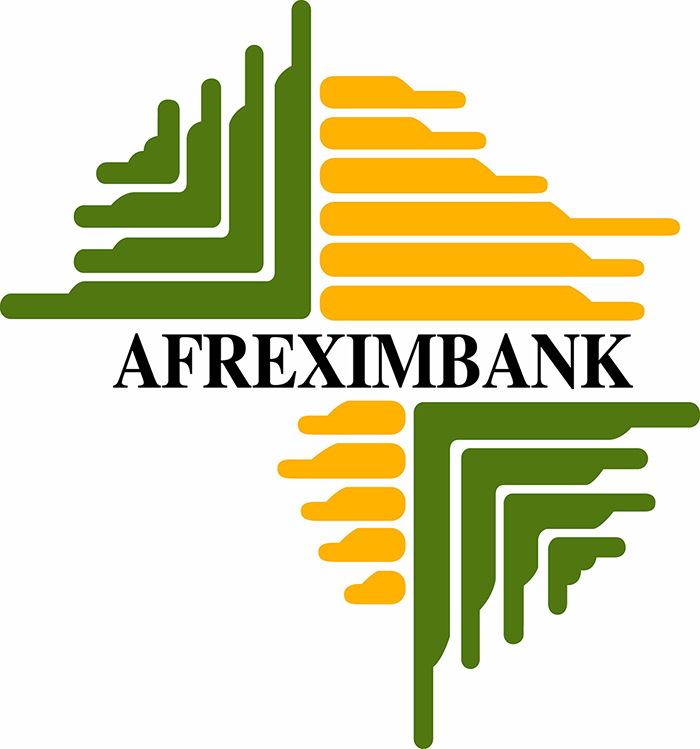29 December 2014, Lagos – Investors reaped more from their investment in the global capital market, even though it recorded mixed performance than the Nigerian capital market in the year, 2014. The investors in the Nigerian capital market lost N3.23 trillion or 24.4 percent towards the end December, 19, 2014.
Specifically, the equity market of the Nigerian Stock Exchange, NSE closed last week Friday 19, December, 2014 at N10.0 trillion from N13.23 trillion it opened at the beginning of trading on 2nd January, 2014.
 In similar vein, the All Share Index dropped by 26.6 per cent towards the end of December, 2014 from 41.329.14 points it opened during the beginning of trading in January 2014 to close on Friday December 19, 2014 at 30,308.51 points. The index measures the performance of the stock market and also reflects how prices of stocks have moved, which in turn determine the rate of returns made by investors.
In similar vein, the All Share Index dropped by 26.6 per cent towards the end of December, 2014 from 41.329.14 points it opened during the beginning of trading in January 2014 to close on Friday December 19, 2014 at 30,308.51 points. The index measures the performance of the stock market and also reflects how prices of stocks have moved, which in turn determine the rate of returns made by investors.
However, operators in the Nigerian capital market have attributed the current decline in the stock market performance indicators to the Central Bank of Nigeria (CBN)’s monetary tightening policies, naira devaluation, and global fall in oil prices, amongst others.
Findings show that Global stocks closed mixed in 2014, as the US New York Stock Exchange (NYSE) Nasdaq index surged by 14.7 per cent to close at 4,765 points last week Friday December 19, from 4,154.20 points it opened in January. In similar manner, NYSE Standard &Poor’ 500 stock index also appreciated by12.5 per cent to close at 2,070.65 points on Friday from 1,841.07 it opened in January 2014. On the other hand, U.S Dow Jones which opened at 16,504.29 points in January increased by 9.2 per cent to close at 17,804.65 points last week Friday. Tokyo’s Nikkei 225, which opened at 16,291.31 points increased 8.2 per cent to close at 17,621.40 points; while London Stock Exchange’s FTSE 100 index dropped by 2.8 per cent to close at 6,545. 27 points on Friday from 6,731 it opened in January.
Reforms
There had been a far reaching reform programme that is meant to address some of the challenges facing the market. There had been less investor apathy and increased certainty of the market at the beginning of the year until the fourth quarter that the election is getting closer. In the past years there were regulatory lapses, many cases of wrongdoing leading up to the crisis and most worrisome; a market that was way below its potential in terms of breadth, depth, liquidity, sophistication and governance.
The regulatory reform agenda of the present SEC administration has largely been based on the report of an Industry Committee established by then commission in 2008 titled “Making World Class Potential a Reality”.
Capital Market 10 years Master Plan
The SEC took decisions to leverage cooperation within the Capital Market Committee (CMC) to set up industry-wide committees to examine the state of the market and chart its future path. The result of this exercise is the development of a 10-year master plan for the Nigerian capital markets with specific blue prints for capital market literacy and non-interest capital market products. This is in line with global best practice as we have learnt from successful examples from peer emerging markets.
Statistics had shown that Malaysia developed a 10-year master plan for their capital market in 2001. By the end of 2010 they had implemented 95 percent of the recommendations in the plan which led to a doubling of the market size from USD317 billion to USD606 billion. The plan further established Malaysia as one of the world’s most important Islamic finance centers while moving it from a narrow market dominated by equities and bonds to other products like REITs, ETFs, derivatives, and non-interest products. Malaysia’s first master plan was so successful, they developed a second one for their market currently being implemented leading to 2020. Closer home, Kenya has also recently launched a 10-year master plan to guide the development of their capital market.
Elimination of Stamp duty and waivers:
This year, the federal government announced the elimination of stamp duties and value added tax (VAT) on market transactions while being instrumental to the much needed forbearance for stockbrokers.
The SEC has ensured that investor confidence is restored, adopting a posture of zero tolerance to wrongdoing while strengthening its enforcement machinery through partnerships with the Office of the Attorney General of the Federation and the Nigeria Police Force. The commission instituted legal proceedings against over 260 individuals and entities for various forms of market infractions seeking to disgorge all illegally gotten wealth and restitute investors.
Investors protection
The commission has revamped the investor protection and dispute resolution mechanism by strengthening the SEC’s quasi-judicial Administrative Proceedings Committee (APC), developing a robust complaint management framework, setting up the National Investor Protection Fund and strengthening Anti-Money Laundering and Counter Terrorism Financing (AML/CFT) framework.
Rule making
The commission reinvigorated the rule making, ensured adherence to the principles of securities regulation as espoused by members of the International Organization of Securities Commission (IOSCO) in which it is a leading member. The commission has also ensured market transparency through implementation of global best practice in corporate governance and financial reporting, issuing a new Code of Corporate Governance and supporting the adoption of the International Financial Reporting Standards (IFRS).
In the stock market, it introduced rules on securities lending and market making to boost liquidity, as it approved new listing rules of the NSE to attract more listings and allow the market do more for Small and Medium Scale Enterprises, SMEs and businesses in strategic sectors.
Bond market
SEC focused on building the bond market. It streamlined the bond issuance process, introduced shelf registration and book building, and reduced issuance costs. It created an enabling environment that fosters product innovation leading to the introduction of newer products beyond equities and bonds including exchange traded funds (ETFs), real estate investment trusts (REITs), other varieties of collective investment schemes and broadened non-interest capital market products to include Sukuk bonds.
The Commission reinforced the investor education agenda leveraging innovative platforms like Nigeria’s Nollywood, cable television and the social media. It also reach people directly through its catch-them-young programme, secondary school quiz competitions, partnership with NYSC, SEC Integrity Award, programme for market men and women and academies for shareholders and journalists.
Effects:
The domestic bond market has been attracting different categories of issuers including State governments, government agencies and companies. Current bond market capitalization is at N9.95 trillion comprising N4.10 trillion of FGN bonds, N4.35 trillion of Asset Management Corporation of Nigeria, AMCON bonds and N1.5 trillion state government and corporate bonds. The market during the year under review has attracting triple-A rated issuers like the African Development Bank (AfDB) and the International Finance Corporation (IFC) both of whom have issued Naira-denominated bonds. With benchmark yield curve of up to 20 years, the domestic bond market is well positioned to serve as an important source of capital to tackle Nigeria’s infrastructure deficit.
The market today is also a lot less concentrated as the share of the banking sector has reduced from about 60 percent to about 25 percent of total capitalization. Industrial goods, consumer goods and oil & gas have become important components. The historic dual listing of Seplat Petroleum on the Nigerian Stock Exchange and the London Stock Exchange is a good case in point of the growing importance of other sectors. Our stock market over the last two years was among the 10 best performing in the world returning 35 percent in 2012 and 47 percent in 2013.
Stock market infrastructure development:
The management at the NSE is leading a commendable transformation of the exchange actively seeking to boost listings, becoming a full member of the World Federation of Exchanges (WFE) and rolling out Africa’s most robust trading engine – the X-GEN – amongst other initiatives.
The commission has equally supported the Central Securities Clearing System (CSCS) in its reform of the settlement and clearing system notably the implementation of SWIFT and straight-through-processing.
Overall liquidity in the market has improved significantly since the introduction of market making. An over-the-counter (OTC) trading platform sponsored by the National Association of Securities Dealers (NASD) has started operations to help increase liquidity in the trading of unlisted companies.
Conclusion
In spite of the progress made so far, the Nigerian capital market is not where it ought to be considering the immense potential of the country. The ratio of market capitalization of listed stocks to GDP is in Nigeria is still very low at only 16 percent compared to 247 percent in Malaysia, 207 percent in South Africa and 112 percent in Brazil. The stock market does not give a proper reflection of our economy as important contributors to GDP like Agriculture, Trade, Oil & Gas and Telecommunications are not adequately reflected in the market capitalization. This partly explains the current performance with the market trading like an oil & gas stock down 19 percent year to date.
The bond market has a lot of room for growth with debt-to-GDP ratio at only 11 percent compared to over 200 percent in Japan, 110 percent in Singapore, 103 percent in the United Kingdom, 103 percent in the United States (US) and over 60 percent in China. All round, liquidity needs to improve well beyond its current level. The ratio of net asset value (NAV) to GDP in Nigeria is only 0.2 percent compared to 77 percent in the US, 30 percent in South Africa and 5 percent in India.
The regulators in the market have stated that there is need to focus on Collective Investment Scheme, CIS to enable a lot more Nigerians participate in market growth.
The capital market can play a far greater role in actualizing Nigeria’s aspirations than it currently does. On this note, it must be positioned to grow in a strategic and organized manner.
Developing and implementing master plans have proven such an effective endeavor; it is not even limited to emerging and developing markets. Recently, the European Union’s (EU) financial services commissioner Jonathan Hill announced plans by the EU to unveil a long term master plan in mid-2015 that will lead the growth and integration of European capital markets while reducing companies’ reliance on banks.
– Peter Egwuatu, Vanguad



